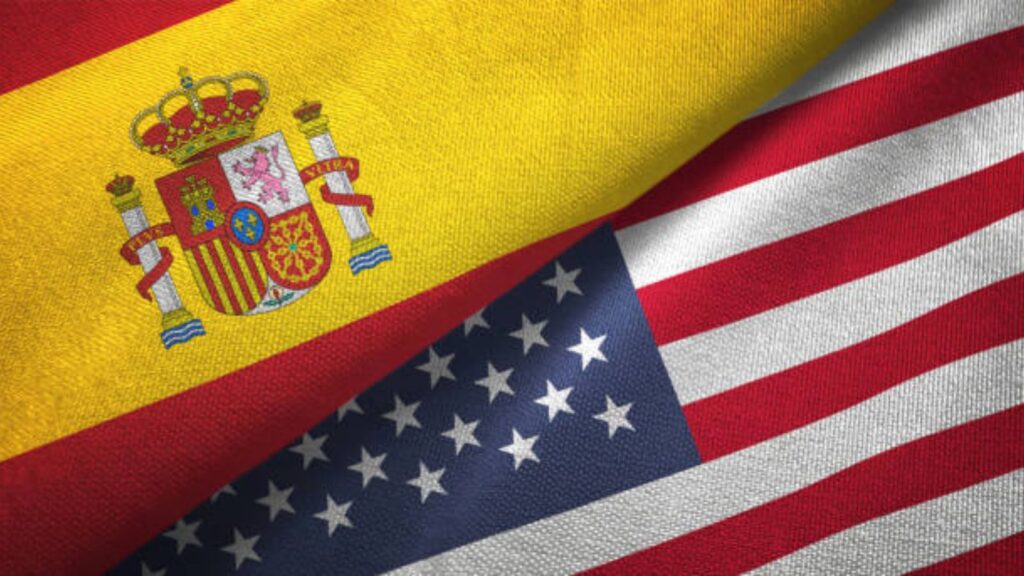In the United States, Spanish isn’t a foreign language—it’s a part of daily life. With over 41 million native Spanish speakers and another 11 million who speak it as a second language, Spanish is the second most spoken language in the U.S., right after English.
From neighborhood conversations and school announcements to hospital signage and customer service lines, Spanish is everywhere.
This isn’t a trend—it’s a reality. For Americans, learning Spanish isn’t just useful—it’s becoming essential for better communication, connection, and understanding within their own country.
Whether you’re a student preparing for your career or a professional looking to connect with a wider audience, working with a Spanish tutor can give you the structured, real-life language experience needed to become fluent and confident.
Better Career Opportunities In A Competitive Job Market
In today’s job market, bilingualism gives you a clear advantage. Employers across industries—healthcare, education, law enforcement, hospitality, and customer service—are actively seeking people who can communicate in both English and Spanish. Even in corporate roles, being able to interact with Spanish-speaking clients, vendors, or coworkers can open doors to promotions, travel opportunities, and expanded responsibilities.
When you’re bilingual, you’re not just a translator—you’re a bridge. You become someone who can navigate between cultures, smooth communication breakdowns, and help companies grow in diverse communities. And in a country where the Latino population is growing every year, businesses see Spanish proficiency as a valuable asset—not just a bonus.

Stronger Social And Community Connections
Language is more than a tool—it’s a doorway into another person’s world. Being able to speak Spanish allows Americans to connect more meaningfully with neighbors, coworkers, friends, and local communities. Imagine greeting your Spanish-speaking neighbors in their native language, helping someone in your community who doesn’t speak English fluently, or volunteering in areas where language barriers exist. These everyday moments of understanding and empathy build bridges and foster mutual respect.
Learning Spanish also shows respect for the millions of Spanish-speaking Americans who contribute daily to the country’s culture, economy, and values. It’s a step toward being a more inclusive, informed, and connected citizen.
A Richer Cultural Experience At Home And Abroad
Spanish opens the door to a vibrant world of music, film, literature, and cuisine. Understanding the language means you don’t just listen to a song—you feel it. You don’t just watch a Spanish-language movie—you understand the subtext, the humor, the passion.
From reading Gabriel García Márquez in the original Spanish to appreciating the rhythm of Latin American poetry or singing along confidently to reggaeton and salsa, learning the language brings cultural experiences to life.
Even within the United States, Spanish-speaking culture is woven into everyday American life. From Miami to Los Angeles, Chicago to Houston, Spanish-speaking neighborhoods are full of stories, traditions, and expressions that shape the American identity.
Knowing the language lets you experience these worlds firsthand, not just as an observer—but as a participant.
Easier Travel And Deeper Experiences Abroad
Spanish is spoken by more than 500 million people worldwide and is the official language of 21 countries, including Mexico, Spain, Colombia, Argentina, and Peru. Whether you’re traveling for business or leisure, speaking Spanish transforms your experience.
You’re not limited to tourist zones or English-speaking guides. You can explore like a local, have authentic conversations, and understand cultural nuances that would otherwise be lost.
Even a basic command of Spanish can help you navigate unfamiliar places, ask for directions, order food, or build spontaneous connections that turn a simple trip into a meaningful memory. Learning Spanish doesn’t just make travel easier—it makes it richer.
It Makes Learning Other Languages Easier
Once you’ve learned Spanish, other Romance languages—like French, Italian, or Portuguese—become much easier to pick up. That’s because they share a similar structure, vocabulary roots, and grammar systems.
Spanish can serve as a gateway language that unlocks your ability to learn even more languages in the future. For those with an eye on becoming multilingual, Spanish is one of the smartest starting points.
Even your English will improve. Since Spanish shares many Latin roots with English, you’ll start to notice patterns and connections between words and meanings. As you learn Spanish vocabulary, your awareness of English vocabulary and grammar often becomes sharper.
Improved Brain Function And Cognitive Flexibility
Learning a second language isn’t just good for communication—it’s good for your brain. Studies show that bilingual individuals tend to have better memory, focus, multitasking ability, and decision-making skills. The mental workout of switching between languages keeps your brain flexible and alert.
For older adults, language learning has been linked to delayed onset of dementia and Alzheimer’s, while for children, it boosts problem-solving skills and academic performance. In other words, learning Spanish doesn’t just make you more connected—it makes you smarter.

English Learners Will Relate To Your Journey
When Americans take the time to learn Spanish, they often develop a new appreciation for the challenges that immigrants face when learning English.
Struggling to express yourself in a second language, making grammar mistakes, or searching for the right word in conversation are humbling experiences. This creates empathy—an understanding that language learning is a journey, not a quick fix.
And just as you’re learning Spanish, millions of Spanish speakers across the U.S. are working hard to learn English themselves.
If you’re bilingual, you can support their journey by sharing resources, having conversations, or even recommending effective clases de inglés that help them feel more confident and capable in English-speaking environments. The language exchange becomes mutual, and both sides benefit.
Final Thoughts
Learning Spanish in America today isn’t just practical—it’s personal. It deepens your relationships, expands your professional horizons, strengthens your brain, and enriches your experience as a member of a bilingual, multicultural society. Whether you’re connecting with a colleague, helping a neighbor, or exploring another country, knowing Spanish lets you show up fully and authentically.
In a country where Spanish is already a part of daily life, the question isn’t whether it’s worth learning—it’s how soon you want to begin.


